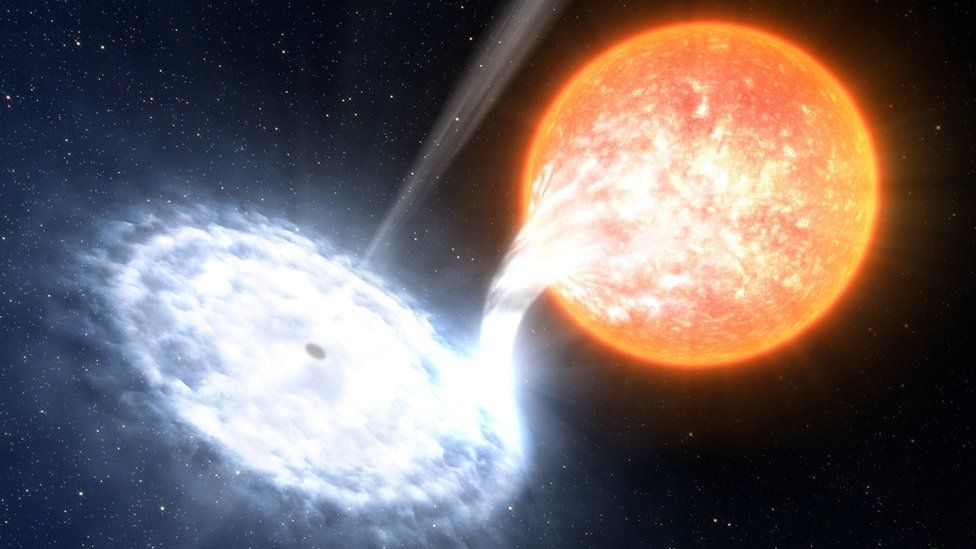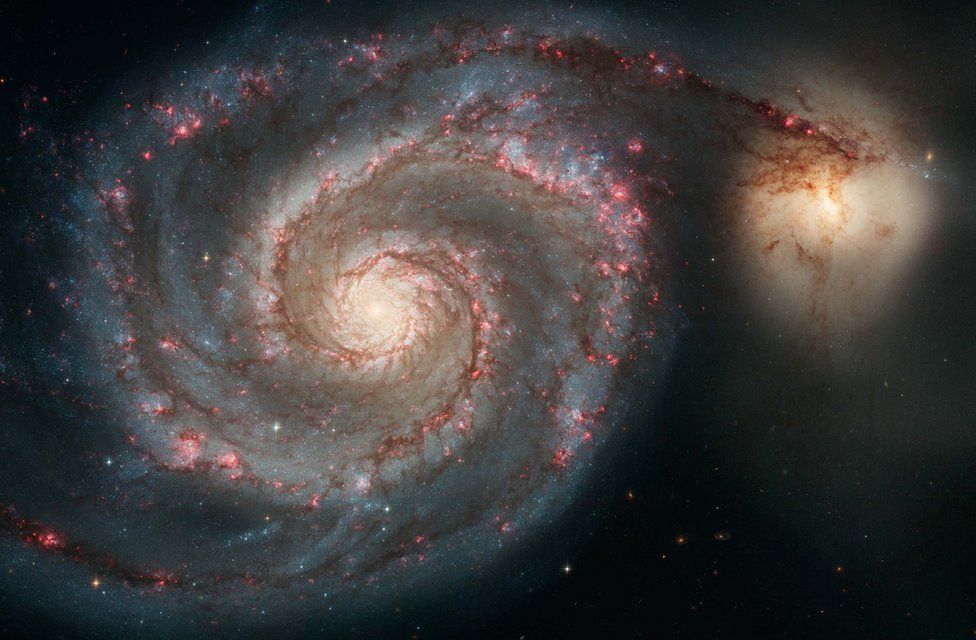
Astronomers have found hints of what could be the first planet ever to be discovered outside our galaxy.
Nearly 5,000 "exoplanets" - worlds orbiting stars beyond our Sun - have been found so far, but all of these have been located within the Milky Way galaxy.
The possible planet signal discovered by Nasa's Chandra X-Ray Telescope is in the Messier 51 galaxy.
This is located some 28 million light-years away from the Milky Way.
This new result is based on transits, where the passage of a planet in front of a star blocks some of the star's light and yields a characteristic dip in brightness that can be detected by telescopes.
This general technique has already been used to find thousands of exoplanets.
Dr Rosanne Di Stefano and colleagues searched for dips in the brightness of X-rays received from a type of object known as an X-ray bright binary.
These objects typically contain a neutron star or black hole pulling in gas from a closely orbiting companion star. The material near the neutron star or black hole becomes superheated and glows at X-ray wavelengths.
Because the region producing bright X-rays is small, a planet passing in front of it could block most or all of the X-rays, making the transit easier to spot.
The team members used this technique to detect the exoplanet candidate in a binary system called M51-ULS-1.
"The method we developed and employed is the only presently implementable method to discover planetary systems in other galaxies," Dr Di Stefano, from the Harvard-Smithsonian Center for Astrophysics in Cambridge, US, told BBC News.
"It is a unique method, uniquely well-suited to finding planets around X-ray binaries at any distance from which we can measure a light curve."
This binary contains a black hole or neutron star orbiting a companion star with a mass about 20 times that of the Sun. A neutron star is the collapsed core of what had once been a massive star.
The transit lasted about three hours, during which the X-ray emission decreased to zero. Based on this and other information, the astronomers estimate that the candidate planet would be around the size of Saturn, and orbit the neutron star or black hole at about twice the distance Saturn lies from the Sun.
Dr Di Stefano said the techniques that have been so successful for finding exoplanets in the Milky Way break down when observing other galaxies. This is partly because the great distances involved reduce the amount of light which reaches the telescope and also mean that many objects are crowded into a small space (as viewed from Earth), making it difficult to resolve individual stars.
With X-rays, she said, "there may be only several dozen sources spread out over the entire galaxy, so we can resolve them. In addition, a subset of these are so bright in X-rays that we can measure their light curves.
"Finally, the huge emission of X-rays comes from a small region that can be substantially or (as in our case) totally blocked by a passing planet."
 https://www.bbc.co.uk/news/science-environment-59044650
https://www.bbc.co.uk/news/science-environment-59044650
-------------------------------
i'm fascinated by all things galaxy related






















 Threaded Mode
Threaded Mode